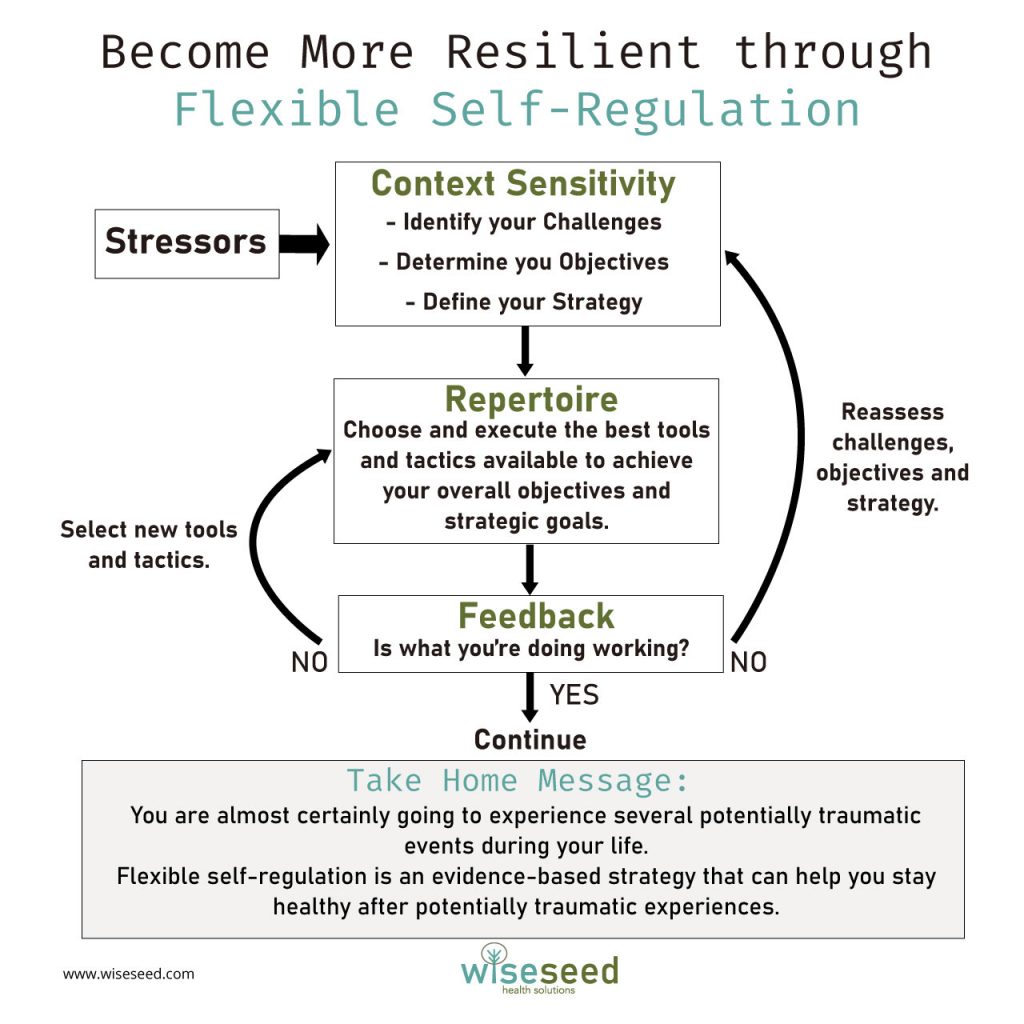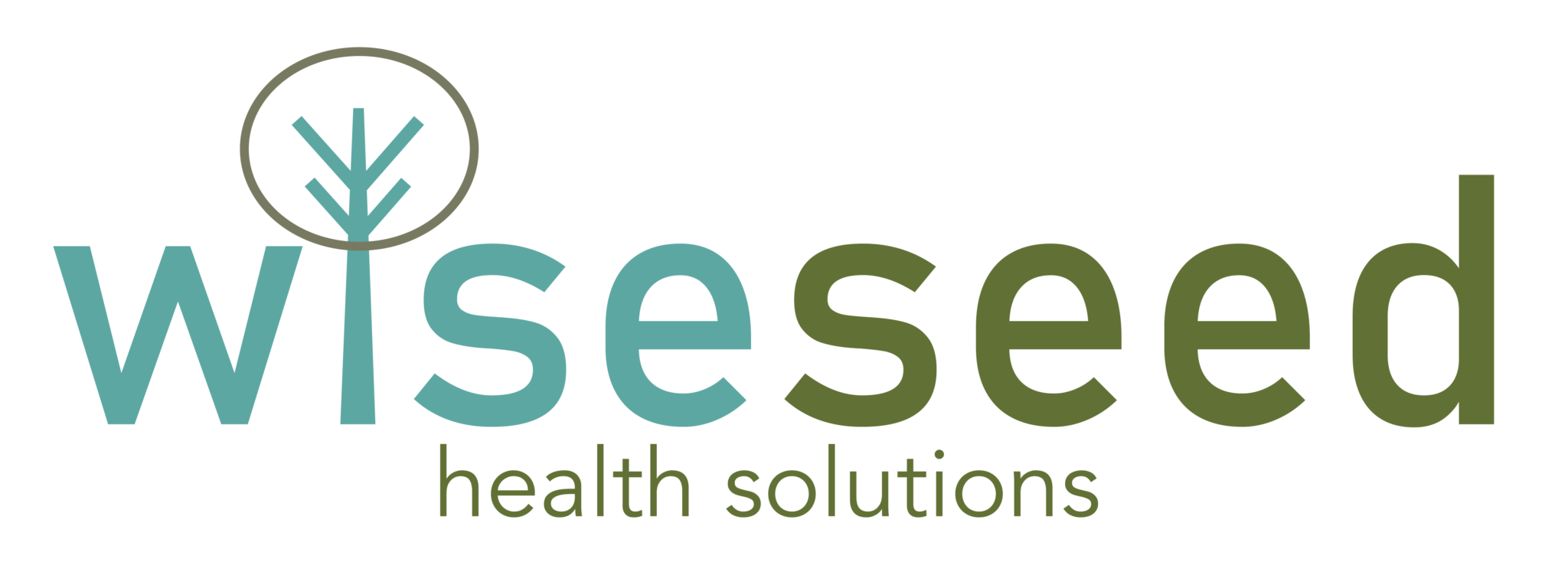Become More Resilient through Flexible Self-Regulation

‘The ability to gain victory by changing and adapting according to the opponent is called genius.’
Sun Tzu
We all want to move forward in the face of adversity, achieve our goals, and be successful in life.
The challenge is that you are likely to be exposed to several traumatic events throughout your lifetime (1). And I’m not referring to the usual life setbacks that leave you crying into your pillow at night.
Instead, I’m talking about genuinely sanity-shredding events such as dealing with a life-threatening and disabling disease, going bankrupt, or losing a loved one.
Fortunately, you are far more resilient than you think. Indeed, the latest resilience research argues that you can recover from even the most challenging circumstances (2-4).
Resiliency for All
The purpose of this article is to provide you with a systematic approach to help you become resilient.
A resilient person maintains a healthy outlook in life and continues to function despite extraordinary setbacks.
Now, it may surprise you to learn that 65% of adults are resilient to one or even multiple extreme events (1). Thus, resiliency is the default state for most people (4).
The fact that most humans are intrinsically resilient makes evolutionary sense. After all, the history of our species is not a story of sunshine and rainbows. Instead, we evolved under extreme duress. Famine, disease, injury, predation, and war were just another day at the office for our hardy ancestors.
Sadly, however, a significant proportion of people who experience traumatic events suffer chronic depression, anxiety, psychological distress, and post-traumatic stress disorder (PTSD) (1).
Fortunately for us, a group of brilliant researchers is uncovering the underlying principles of human resilience (2-4). Furthermore, their research provides a systematic approach to help you become resilient.
Why Simple Solutions Don’t Work
Research into post-traumatic resilience has revealed that exposure to trauma is highly variable. In addition, your situation after a traumatic event constantly changes.
Consider, for example, someone recovering from an automobile accident. The accident victim’s immediate focus is on surgery, pain management, and physical rehabilitation early after the accident.
However, later, they must turn their attention to the long-term effects of their accident. These could include dealing with long-term disability, damage to their career, financial hardship, as well as coping with the psychological trauma of a near-death experience.
Thus, intervention strategies that work during the early recovery phase can be ineffective or even harmful during later stages of the recovery process (2, 4). For these reasons, simplistic approaches to resilience don’t work. Instead, a flexible, adaptive approach to trauma offers the surest path to resiliency (2, 4).
Flexible Self-Regulation
Luckily for us, Dr. Bonanno and Colleagues have developed a systematic approach to overcoming trauma, which they call flexible self-regulation (2-4).
Stage One: Context-Sensitivity
Stage one identifies your overall goals and your optimal strategies to achieve those goals by posing two critical questions (4).
Question One: ‘What do I need to do?’. Answering this question clarifies the challenges you face and defines your overall objectives that address those challenges.
Question Two: ‘What am I able to do?’. Answering this question identifies the strategies you need to implement to achieve your objectives.
For example, imagine a person who has suffered a mild heart-attack heart attack. They could answer the context-sensitivity questions as follows.
Q1 ‘What do I need to do?’.
Answer: I have cardiovascular disease (clarify the challenge). Therefore I need to lose weight (objective 1) and improve my cardiovascular fitness (objective 2).
Q2 ‘What am I able to do?’.
Answer: I can improve my diet (strategy 1) and exercise (strategy 2).
That’s not to say context-sensitivity is straightforward. On the contrary, during very stressful and potentially traumatic experiences, seeing your situation clearly and making optimal decisions can be exceptionally challenging.
In response to stressful situations, you can easily make mistakes. But don’t despair. Instead, adjust and refine your approach as you go. As you’ll see, feedback and adaptation are integral components of flexible self-regulation.
Unfortunately, there are a small number of individuals who are context-insensitive. Such people are far more likely to experience depression and anxiety after a traumatic event (3).
Stage Two: Repertoire
In the repertoire stage, you systematically answer the following question ‘What am I able to do?’ (2, 4).
For example, our unfortunate heart-attack victim has several viable approaches available to achieve their goals of improving their diet and engaging in exercise. They could, for instance, employ the services of a nutritionist and personal trainer, join a gym, and enroll in a supervised exercise program.
Thus, the purpose of stage two is to choose and execute the best tools and tactics available to achieve your overall objectives and strategic goals.
Stage Three: Feedback Monitoring
The purpose of feedback monitoring is to answer the fundamental question, ‘Is what I’m doing working?’ (2, 4).
If the answer is yes, stay the course.
If not, you should revisit your repertoire of tools and tactics and select better options. Alternatively, you may need to redefine your overall objectives and strategies to better align with your current circumstance.
There are two ways to assess whether your approach is working.
The first is through self-reflection and self-monitoring. In our heart-attack example, simple questions such as ‘Am I losing weight?’, ‘Am I getting fitter?’, ‘Am I getting stronger’ go a long way towards assessing the effectiveness of the diet and exercise interventions.
The second method for assessing the effectiveness of your tools and tactics is social feedback. Social cues are a tried-and-true source of independent feedback that you should use whenever possible.
For example, suppose you are well into your hard-core diet and exercise regimes, and your friends keep asking, ‘How’s that training program going?’. In that case, it’s safe to assume that it’s not going great. In contrast, if you keep getting unsolicited compliments, then your diet and workout plan are working.
Critically, your ability to use feedback and adjust your behavior is essential for flexible self-regulation. If things aren’t working, you must change your approach.
Sadly, individuals who aren’t good at feedback regulation are at a much greater risk of depression after experiencing a potentially traumatic event.
Resilient People Seek Help when Required
Extremely stressful life events can traumatize anyone. If you feel overwhelmed, please consider seeking professional help.
Seeking help is an ancient human tradition. People have long sought the counsel of elders, shamans, priests, and priestesses.
In modernity, you can readily access psychologists and psychiatrists who provide an evidence-based approach to counseling founded on literally thousands of research studies.
Accessing a professional therapist or counselor can super-charge your flexible self-regulation approach by (i) greatly enhancing your capacity for developing goals and strategies, (ii) providing a vast repertoire of tactics and tools to help you achieve your goals, and (iii) providing expert feedback based on years of clinical experience.
Thus, during times of extreme stress, the resilient seek the power of professional help.
Take-Home Message
You are almost certainly going to experience several potentially traumatic events during your life. The question is, how well are you going to cope?
Fortunately, the default human response to extreme hardship is resilience.
Nevertheless, people can experience extreme suffering after trauma. Therefore, you need a systematic approach to increase your resilience.
One such approach is flexible self-regulation. Flexible self-regulation is an evidence-based strategy that can help you stay healthy after potentially traumatic experiences.
Finally, humans have a long tradition of seeking guidance and counsel from the wisest amongst us. Thus, seeking help during times of extreme stress should be an integral part of your resilience strategy.

References and Further Reading
1. I. R. Galatzer-Levy, S. H. Huang, G. A. Bonanno, Trajectories of resilience and dysfunction following potential trauma: A review and statistical evaluation. Clinical Psychology Review 63, 41-55 (2018).
2. G. A. Bonanno, C. L. Burton, Regulatory flexibility: An individual differences perspective on coping and emotion regulation. Perspectives on psychological science 8, 591-612 (2013).
3. S. Chen, G. A. Bonanno, Components of emotion regulation flexibility: Linking latent profiles to depressive and anxious symptoms. Clinical Psychological Science 9, 236-251 (2021).
4. G. A. Bonanno, The resilience paradox. European Journal of Psychotraumatology 12, 1942642 (2021).

Ten Minutes is All You Need
Research has shown that ten minutes of moderate-to-vigorous exercise performed each day is enough to significantly reduce your risk of early death.

The Way of the Weekend Warrior
The way of the weekend warrior is one path to health that also leaves plenty of room in your life for the pursuit of other activities that you find important and meaningful.




